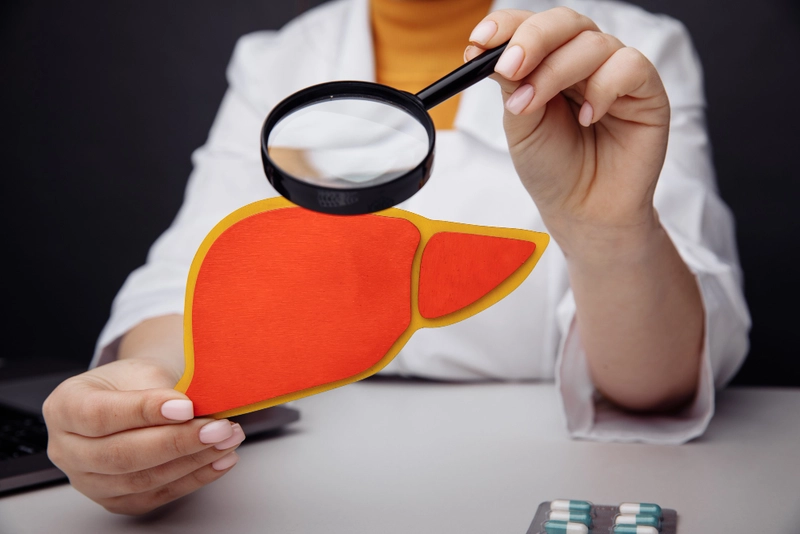- Published on: Jul 17, 2025
- 2 minute read
- By: Secondmedic Expert
Does Skipping Meals Slow Your Metabolism?
Many people skip meals hoping to lose weight or save time. But what happens inside your body when you do that? One of the most common concerns is:
Does skipping meals slow your metabolism?
Let’s explore the facts, myths, and what science really says.
What Is Metabolism?
Metabolism is the process your body uses to convert the food and drinks you consume into energy. Even when you're sleeping, your body is burning calories for basic functions like breathing and circulating blood. This is called your basal metabolic rate (BMR).
The faster your metabolism, the more calories you burn—naturally.
What Happens When You Skip a Meal?
When you skip a meal, your body starts looking for alternate energy sources. First, it uses stored glucose. If that runs out, it may break down fat or even muscle.
You may feel:
-
Tired or sluggish
-
Lightheaded or irritable
-
Crave sugary or high-carb foods later
If this becomes a regular pattern, it can impact your overall health and metabolism.
Does Skipping Meals Actually Slow Down Metabolism?
Short answer: Yes, it can—especially if done frequently.
Here’s how:
-
Your body goes into conservation mode.
To protect itself, your body may burn fewer calories if it senses food is not coming regularly.
-
You may lose muscle.
Skipping meals, especially without enough protein, can lead to muscle loss. Muscle burns more calories than fat—even at rest.
-
Hormonal imbalance.
Skipping meals can increase cortisol (the stress hormone), which is linked to fat storage, especially around the belly.
-
Energy dips.
Less fuel = less energy = less movement = fewer calories burned.
So yes, skipping meals may slow down your metabolism over time, making it harder to lose or maintain weight.
Is Intermittent Fasting the Same?
Not exactly. Intermittent fasting (IF) is a planned eating pattern, like eating between 12 PM and 8 PM.
It gives your body time to digest and repair, and when done right, does not necessarily slow metabolism.
The problem is randomly skipping meals without planning or nutrition tracking. That’s when metabolism can suffer.
Skipping Meals and Overeating
Another big issue is compensation. People who skip meals often overeat later in the day.
You may:
-
Binge on snacks
-
Choose unhealthy options due to cravings
-
Eat faster and beyond fullness
This can lead to weight gain, blood sugar spikes, and digestive discomfort.
Impact on Brain and Mood
Food fuels your brain. Skipping meals can cause:
-
Low focus and memory issues
-
Irritability and mood swings
-
Poor decision-making (especially with food choices)
It can also affect sleep and increase fatigue.
Healthy Alternatives to Skipping Meals
If you’re trying to lose weight or manage calories, here are smarter strategies:
1. Try time-restricted eating
Eat within a 10–12 hour window daily. This gives the benefits of fasting without shocking your system.
2. Eat smaller portions, not fewer meals
Balance your plate with carbs, protein, and healthy fats. Even 200–300 calorie meals can keep metabolism stable.
3. Stay hydrated
Sometimes thirst feels like hunger. Drink enough water throughout the day.
4. Focus on protein and fiber
They keep you full longer and help preserve muscle.
When to Worry
If you skip meals often and notice:
-
Constant fatigue
-
Weight gain despite eating less
-
Cold hands and feet
-
Hair thinning or dry skin
…these may be signs your metabolism has slowed down. Consult a doctor and consider tests like:
-
Thyroid function test
-
Vitamin B12/D3 levels
-
Fasting blood sugar
You can book these via SecondMedic.com, with home sample collection powered by Thyrocare.
Conclusion
Skipping meals once in a while won’t ruin your metabolism. But making it a habit can lead to slower calorie burning, muscle loss, and overeating.
If your goal is better health, focus on balanced eating, meal planning, and mindful food habits.
So, the next time you ask, “Does skipping meals slow your metabolism?”, remember—yes, it can, especially without strategy or support. Eat smart, not less.
Read FAQs
A. Yes, especially if done regularly. Your body may conserve energy by burning fewer calories.
A. No. Intermittent fasting follows a structured pattern, while skipping meals may be random and unplanned.
A. It might. Skipping meals often leads to binge eating later or a slower metabolism, which can cause weight gain.
A. You may feel tired, lose concentration, and overeat later in the day. Some people adapt, but others struggle.
A. Occasionally is fine, but regular skipping can affect metabolism, mood, and nutrition balance.
Our Services
Request A Callback
Recent Posts
Can Fatty Liver Be Reversed Completely?
Jul 31,2025
How Your Sleep Schedule Affects Digestion
Jul 28,2025
How to Spot Signs of Hormonal Imbalance in Men
Jul 26,2025
Do You Need a Digital Detox? Signs and Symptoms
Jul 25,2025
How Walking Daily Affects Your Blood Pressure
Jul 24,2025










